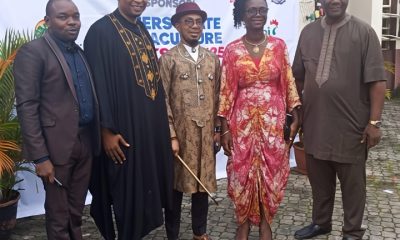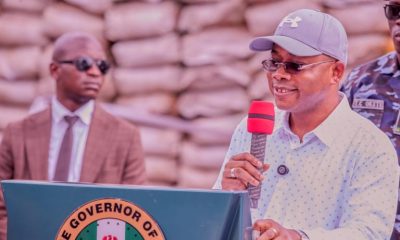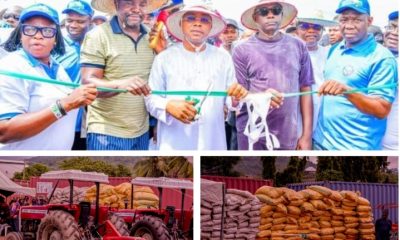…RRIN’s research ends in their test tube – Scientist
…Rubber sector ‘ll determine Nigeria’s economic direction – NRPPMAN
By Ezurike ugochukwu
As Nigeria hosts the 2024 World Rubber Summit, organized by the International Rubber Study Group (IRSG), stakeholders in the natural rubber industry are hopeful that the government will address past neglect and help move the nation out of its current economic difficulties.
They expressed regret that the Rubber Research Institute of Nigeria (RRIN) in Iyanomo Town, Edo State, has failed to make significant efforts in promoting the planting, processing, and export of natural rubber.
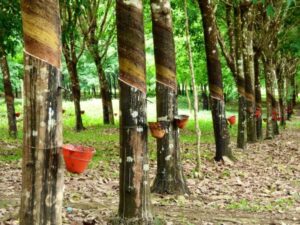 Stakeholders agree that the agency is underfunded but also believe it has not demonstrated the necessary competence to drive the needed change in the industry.
Stakeholders agree that the agency is underfunded but also believe it has not demonstrated the necessary competence to drive the needed change in the industry.
Speaking to NationUpdate, Mr. Fidelis Anochi, a scientist and graduate of Polymer Science & Technology, criticized RRIN for not effectively engaging with industry players and farmers. Anochi pointed out that the results of RRIN’s research are not widely known or felt by smallholder farmers and major rubber companies. He expressed concern that resolutions from the World Rubber Summit might not be implemented.
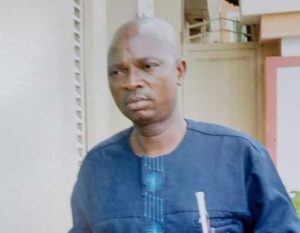
Fidelis Anochi
Anochi stated, “RRIN was established to research on natural rubber, gum arabic and other latex producing plants, but we don’t see them introducing modern rubber seedlings and stumps. They have not developed high-yielding, disease-resistant clones(species). Any research they conduct seems to remain within their test tubes. The system is filled with square pegs in round holes, and they have not made their impact felt by farmers or provided consultancy services.
“Players within the local content struggle on their own. Even in the area of quality processing and improvement, they are not still doing anything; they are there for existing sake, “ Anochi stated.
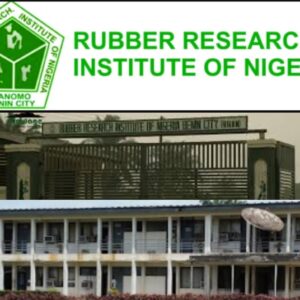 Expectations of the stakeholders are high putting into cognizance the motive behind the establishment of the institute as the only federal government agency in Nigeria that has the mandate to conduct research, develop and transform the natural rubber, gum arabic and other latex producing plants of economic importance. Applying cutting edge scientific know-how delivered by motivated, dedicated and highly trained manpower following the enactment of Nigerian Research Institute Act (No. 33) of 1964 and the promulgation of Agricultural Research Institutes Decree No.35 of 1973.
Expectations of the stakeholders are high putting into cognizance the motive behind the establishment of the institute as the only federal government agency in Nigeria that has the mandate to conduct research, develop and transform the natural rubber, gum arabic and other latex producing plants of economic importance. Applying cutting edge scientific know-how delivered by motivated, dedicated and highly trained manpower following the enactment of Nigerian Research Institute Act (No. 33) of 1964 and the promulgation of Agricultural Research Institutes Decree No.35 of 1973.
 Sunday Okolocha, Secretary General of the National Rubber Producers, Processors and Marketers Association of Nigeria (NRPPMAN), lamented that rubber, once a mainstay of the economy, is now unknown to younger generations. He criticized RRIN for not promoting rubber farming as expected, especially in the southern regions, despite focusing on the north. Okolocha emphasized the need for RRIN to move away from budded rubber to modern breeds and to establish accessible nursery farms for smallholders.
Sunday Okolocha, Secretary General of the National Rubber Producers, Processors and Marketers Association of Nigeria (NRPPMAN), lamented that rubber, once a mainstay of the economy, is now unknown to younger generations. He criticized RRIN for not promoting rubber farming as expected, especially in the southern regions, despite focusing on the north. Okolocha emphasized the need for RRIN to move away from budded rubber to modern breeds and to establish accessible nursery farms for smallholders.
“RRIN from my assessment has not done well in supporting and improving the industry. We have discussed with them on developing high yielding rubber clone, moving away from budded rubber.
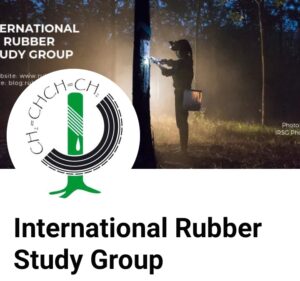 “They seem not to have supported the industry in the south, even as they have succeeded in establishing rubber plantation in kaduna, they have not in any way shown such vigour and support to rubber farmers and processing factories in the south-south, southeast and west. No motivation on individuals to grow their own farms.
“They seem not to have supported the industry in the south, even as they have succeeded in establishing rubber plantation in kaduna, they have not in any way shown such vigour and support to rubber farmers and processing factories in the south-south, southeast and west. No motivation on individuals to grow their own farms.
”A lot of orientation needs to be carried out on our people to reawaken their interest on rubber. That’s what the government in collaboration with RRIN need to do.
“We are not against developing the north, but they should show attention to farm development in the south.
“Production is going on in kaduna now, we are not saying what they are doing is not good, but they should support local individual farmers in the south.
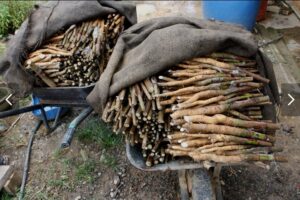 “Attention should move away from budded storm owing to its low survival risk. We have told them that budded storm is a thing of the past. If I have to access them, they are not doing much.
“Attention should move away from budded storm owing to its low survival risk. We have told them that budded storm is a thing of the past. If I have to access them, they are not doing much.
“I express doubt on the institute having enough and high yielding rubber plants to give or sale to farmers.
Chief Lucky Nwachukwu, Chairman of the Abia State chapter of NRPPMAN, expressed his displeasure with RRIN’s performance and the closure of its branch in Akwaete Abia State. He noted that despite his regular purchase of rubber plants from RRIN, the institute has not supported his initiatives or provided information on the type of rubber clones he buys.
“Though they always attribute their failures to paucity of fund, I still believe they are not living up to expectation. Since 2018 I started going there to buy budded rubber i plant, they have never come around to see what am doing, whether the rubbers they are surviving or not.
They ought to have conceived the simple idea of creating whatsApp group through which they could encourage and educate farmers, all to no avail. Am even most worried that they don’t even tell you the type of rubber clone they give you to plant, whether they are high yielding species as expected today or not.
“I am the only rubber farmer still making efforts to plant rubber across the Niger. I can tell you authoritatively that am not getting any support from the government or the agency. As NRPPMAN chairman in Abia State, my various efforts to bring other rubber farmers together to encourage them on planting new rubbers have not got support from any government or her agency.
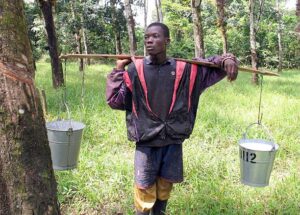
“Both federal and state governments should create incentives to lure farmers into rubber farming just like the way our fathers were encouraged to get involved in rubber that boosted our economy along with cocoa and groundnut.
Chief Nwachukwu, prayed and hoped that the World Rubber Summit will bring about the desired motivation to Abia, Imo and other states to inspire them towards the future, see prospects in rubber and invest in it.
Mr. Collins Ejiemeonu, a rubber farmer in Imo State, criticized the state government for not reviving the rubber industry. He mentioned that his efforts to plant new rubber trees were stalled by lack of support and resources.
He said, “some of us that made efforts to plant could not continue as a result of unavailability and proximity to rubber stumps or budded plants. The Imo rubber at Ohaji area of the state has several challenges facing it. Former Governor Ihedioha made effort to revive the industry but as soon as he was removed, that effort died with the administration. Nothing is happening in Imo state.”

Ovbije
Julius Ovbije, a rubber farmer and processor from Delta State, highlighted the extortion faced by rubber farmers from security personnel. On the performance of RRIN, he called for its overhaul. He suggested that the government should bring stakeholders together to develop a deliberate approach to revive the institute and the industry as a whole.
National Vice Chairman of NARPPMAN, Mr. Usen Umoh, urged rubber farmers to replant aging plantations and emphasized the potential economic importance of rubber. He called on financial institutions to support rubber farmers despite the plant’s long gestation period.
He expressed optimism that the country’s economy can be revived from rubber as it was before the oil boom.
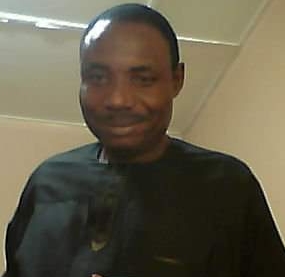
Akiewe
Mr. Simon Akiewe, General Manager of Imoniyame Holdings Limited(IHL), a rubber processing company in Ugheli Delta State criticized the lack of support from state and federal administrations and noted that most rubber trees are now beyond their productive age. He called for government’s assistance in providing seed capital and addressing policy inconsistencies that hinder industry development.
“Most of the rubber trees were planted in the 1950s and 60s, and no concerted efforts by the various state governments to replace them,” he said.
Akiewe enjoined government of the day to support the manufacturers and smallholder farmers through the provision of seed capital and set up quality control mechanism. He also blamed policy summersault as part of the problems that have deterred major development in the industry in Nigeria. He recalled the efforts of the Chief Olusegun Obasanjo’s regime from 1999 to 2003, (Presidential Initiative on Rubber) which came with the initiative of 20,000 hectares of rubber to be planted yearly in the states that have suitable soil for rubber production; he regretted that such lofty initiative never lived beyond that regime.

Lawal
Mr. Bayo Lawal, the chief executive officer of Rubbertech Services, called for a reevaluation of RRIN and all they stand for to enable it align with its original vision, he sought government support in acquiring modern processing machines.
He emphasized the importance of supervising the quality of processed rubber to ensure it meets export standards and retains economic value within Nigeria.
“Foreigners calling the shot in the industry is not healthy for the industry and not favourable to smallholder farmers bearing in mind the huge economic benefits of rubber which outside air, water and petroleum is rated the world’s fourth most important natural resource.”
Bayo who is also the publisher of Nigerian rubber journal charged RRIN to brace up along with Standard Organization of Nigeria(SON) in order to supervise the quality of rubber being processed.
He said, “Most of the factories in the country cannot produce quality grades that meet export and local end users standard due to substandard processing machines they use in addition to dearth of technical know-how.”
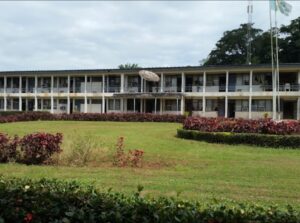
On a visit of our correspondent an agricultural journalist to RRIN in 2023, the secretary to the executive director/chief executive officer of the institute, even as she declined giving her name and contact of the director however expressed concern over the neglect of the industry and the hope investing in rubber holds at breathing new life to the nation’s economy.
She was firm in her belief that government investing in rubber will place the country in a better stead economically.
The secretary however asked the journalists to make a repeat trip to the institute.
When the reporter after some months called the secretary on her mobile phone to explore the possibility of speaking to the director on phone, (since it would be difficult for them to return to the institute from their Lagos base again) he was told that the director was not around as she was not in position to speak for the institute.
However, she advised the reporter not to worry that they would call him whenever they need his service.
Nigerian farmers look up to a robust deliberation that will turn around the fortunes of the industry, offer the needed support to the sector especially smallholder farmers as it is in other countries and make rubber farming attractive as oil and gas.

 Crime1 year ago
Crime1 year ago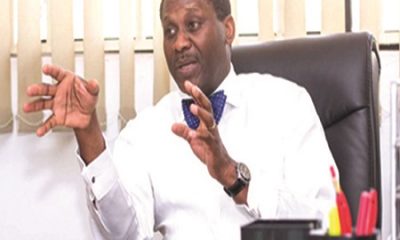
 Business5 years ago
Business5 years ago
 News6 years ago
News6 years ago
 Crime2 years ago
Crime2 years ago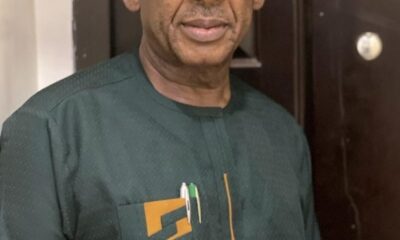
 News2 years ago
News2 years ago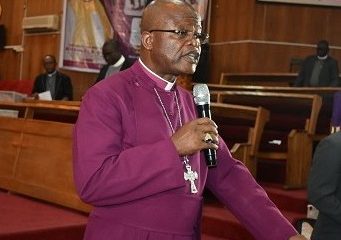
 News6 years ago
News6 years ago
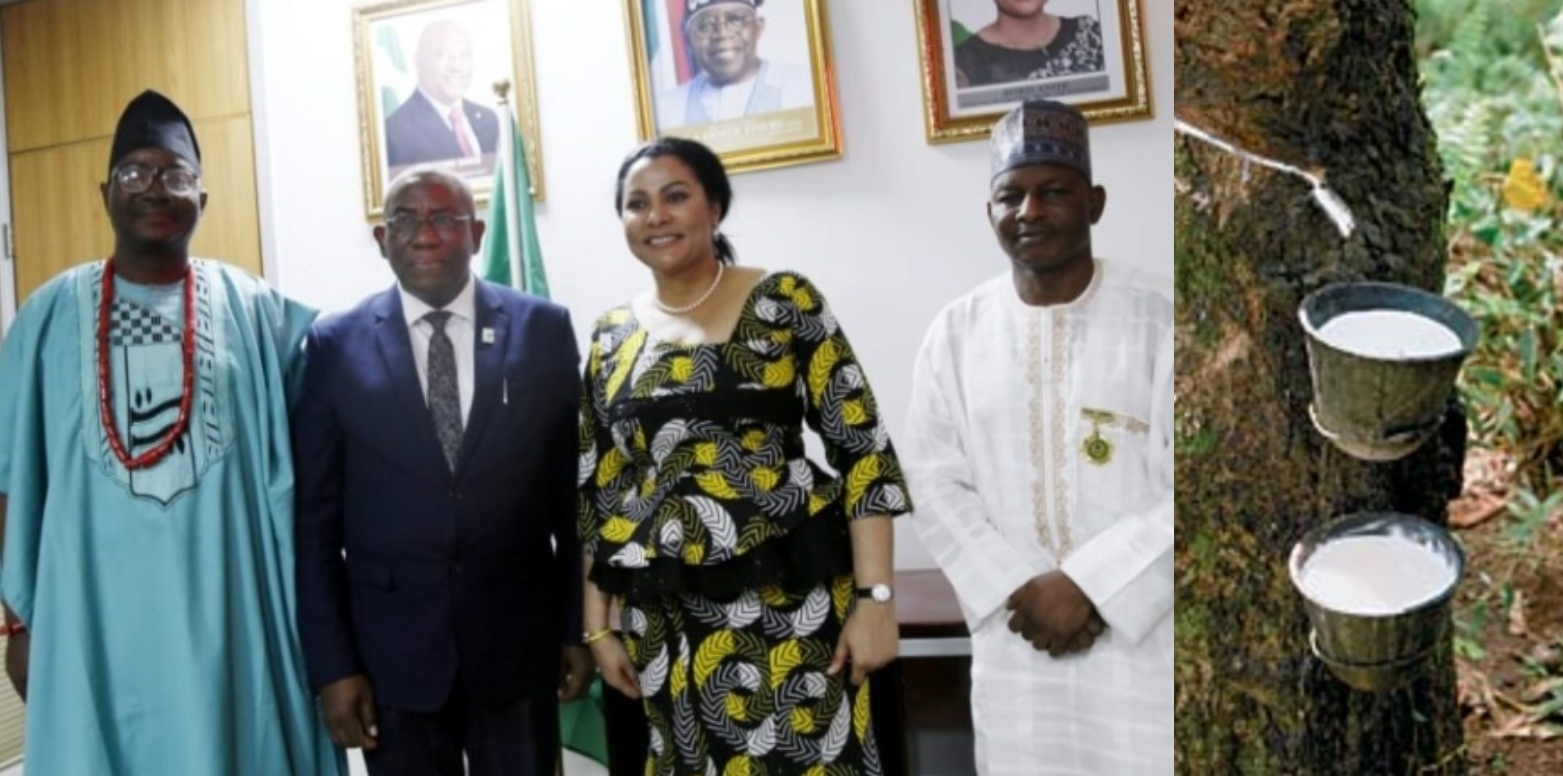

 Stakeholders agree that the agency is underfunded but also believe it has not demonstrated the necessary competence to drive the needed change in the industry.
Stakeholders agree that the agency is underfunded but also believe it has not demonstrated the necessary competence to drive the needed change in the industry.
 Expectations of the stakeholders are high putting into cognizance the motive behind the establishment of the institute as the only federal government agency in Nigeria that has the mandate to conduct research, develop and transform the natural rubber, gum arabic and other latex producing plants of economic importance. Applying cutting edge scientific know-how delivered by motivated, dedicated and highly trained manpower following the enactment of Nigerian Research Institute Act (No. 33) of 1964 and the promulgation of Agricultural Research Institutes Decree No.35 of 1973.
Expectations of the stakeholders are high putting into cognizance the motive behind the establishment of the institute as the only federal government agency in Nigeria that has the mandate to conduct research, develop and transform the natural rubber, gum arabic and other latex producing plants of economic importance. Applying cutting edge scientific know-how delivered by motivated, dedicated and highly trained manpower following the enactment of Nigerian Research Institute Act (No. 33) of 1964 and the promulgation of Agricultural Research Institutes Decree No.35 of 1973. Sunday Okolocha, Secretary General of the National Rubber Producers, Processors and Marketers Association of Nigeria (NRPPMAN), lamented that rubber, once a mainstay of the economy, is now unknown to younger generations. He criticized RRIN for not promoting rubber farming as expected, especially in the southern regions, despite focusing on the north. Okolocha emphasized the need for RRIN to move away from budded rubber to modern breeds and to establish accessible nursery farms for smallholders.
Sunday Okolocha, Secretary General of the National Rubber Producers, Processors and Marketers Association of Nigeria (NRPPMAN), lamented that rubber, once a mainstay of the economy, is now unknown to younger generations. He criticized RRIN for not promoting rubber farming as expected, especially in the southern regions, despite focusing on the north. Okolocha emphasized the need for RRIN to move away from budded rubber to modern breeds and to establish accessible nursery farms for smallholders. “They seem not to have supported the industry in the south, even as they have succeeded in establishing rubber plantation in kaduna, they have not in any way shown such vigour and support to rubber farmers and processing factories in the south-south, southeast and west. No motivation on individuals to grow their own farms.
“They seem not to have supported the industry in the south, even as they have succeeded in establishing rubber plantation in kaduna, they have not in any way shown such vigour and support to rubber farmers and processing factories in the south-south, southeast and west. No motivation on individuals to grow their own farms. “Attention should move away from budded storm owing to its low survival risk. We have told them that budded storm is a thing of the past. If I have to access them, they are not doing much.
“Attention should move away from budded storm owing to its low survival risk. We have told them that budded storm is a thing of the past. If I have to access them, they are not doing much.







